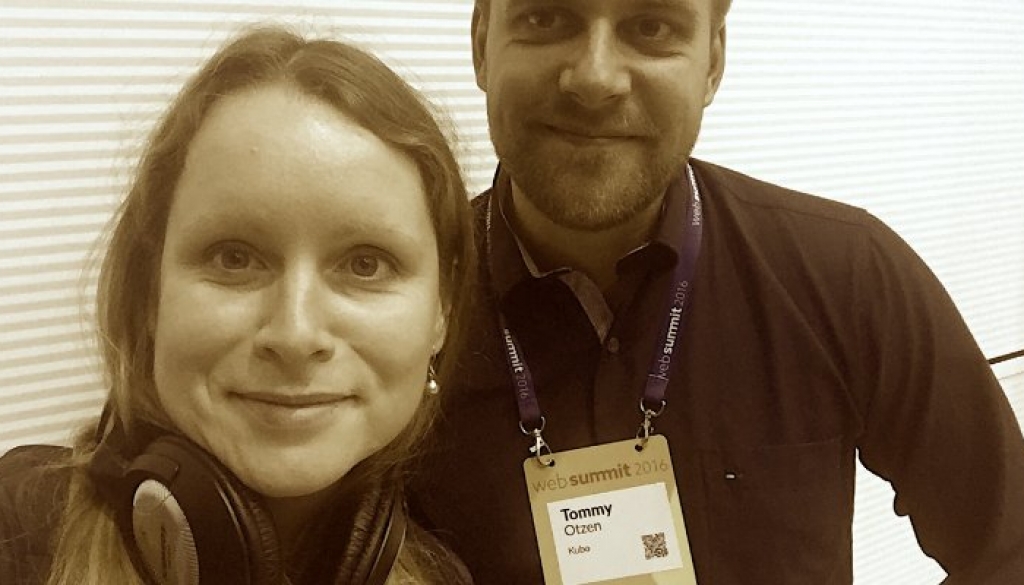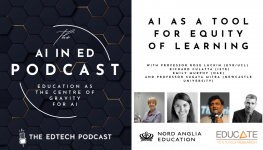Edtech trends at Websummit

In October I was one of 2000 media types at Websummit 2016. Websummit is billed as “Europe’s Largest Technology Marketplace”, with 53,056 people from 166 countries in attendance. Speakers included Sean Rad (great name), Co-Founder & CEO, Tinder, Roberto Azevêdh, Director-General, World Trade Organization and Gary Vaynerchuk, Founder & CEO, VaynerMedia, but I took the trip out to Websummit to uncover what was happening in education.
So, what did I find? Though several hundred of the attendees work in education services – including Colum Elliott-Kelly, Global Head of Education, Blippar, Mo Mizra, VP for the LSE Entrepreneurs Society, and Bianka Siwinska, CEO, PERSPEKTYWY Education Foundation on the attendee list – as yet, there is no dedicated Edtech stage at Websummit. Instead, speakers feature on the ‘Future Societies Stage’ or ‘Startup University’. You can find out more about some of these sessions by digging about in this Evernote from the event here. During my three days at the event, I interviewed dozens and ran an Edtech Podcast pop-up drinks. Below, I list out the edtech trends I spotted during this time, which you can explore further by listening to episodes 42, 43 and 44 of The Edtech Podcast.
Chatbots and Education at Scale
Chatbots were the number one trend that sticks in my mind as I come away from Websummit 2016. The number of exhibitors dedicated to bots was noticeable, and they came up in multiple presentations (and then formed the keynote at Future Book/Edtech for Publishers a week later). As we grapple with ever larger class-sizes, whole demographics coming into education for the first time, and the need to provide teaching and learning to 65m displaced people on the planet, chatbots become interesting. Why? You are reaching students in their own environment – on Facebook messenger, or other messenger services, with the ability to ask any question and receive a reply immediately and automatically. This could be asking about a particular subject, or a query on sexual health or e-safety which may be embarrassing to ask directly. For parents of students, instead of emailing individual teachers or administrative staff at a school or university you could find out FAQ information instantly or have your services triaged to get the personal interaction more quickly. Chatbots came up in my interview with Andrew Harper, Head of Innovation, UNHCR and also with Inge Patsch, Founder of Career Disha Nepal and you can hear from It’s Alive on the role of a chatbot in this episode:
We believe a chatbot has a main purpose; to supply to specific questions. We are all human. We can’t reply to all questions.
For edtech startups, they also are very interesting, given the small teams involved vs. the number of inbound enquiries received.
AI is coming, local skills drives will be important
Skills drives are important whether AI is coming or not, but what we can be clear on is AI IS happening. Hanson Robotics displayed Sophia, an artificially intelligent robot, at Websummit for the first time. Sophia was able to take part in an interview with Ben Goertzel, AI researcher and Mike Butcher of TechCrunch. For Goertzel,
In the interim, the OECD is encouraging educators to look at what digital skills we should consider important. Lizzie Edwards of the Digital Learning Programme at the British Museum talked to me about her projects to encourage school kids to engage with the concepts of Big Data, Lotis Bautista of Volo Group on volunteering to develop practical skills based learning, and Inge Patsch, Founder of Career Dish Nepal on challenging a societal prioritisation of students into traditional career routes.
Managing data, and questions of privacy and security are a given in this area.
‘Phygital’ – the combination of physical and digital learning experiences
To date, edtech has largely been presented in popular narratives as a choice between progs/trads, between tech/textbooks or between early adopters/luddites. As we settle into our digital age, my belief is we will get more comfortable with combining experiences of physical and digital learning. Enter new buzzword ‘phygital’ which describes such a combination and very much present at Websummit in the likes of Kubo Robot and Magikbee.
Kids are losing touch with physical toys.
Kubo Robot won the WebSummit pitch and $100,000 from Portugal Ventures on the premise of teaching children coding without the use of any screens, instead using mats and physical objects to visualise the world of programming. Magikbee (like Osmo or recent Emerge Education cohort members Filisia) are a learning toy for children which combines the physical and digital, in this case traditional coloured wooden building blocks with challenges presented on an iPad screen which the blocks may solve. Finally, a company mentioned by Career Disha Nepal in ep 43 offer learning experiences for students based around physical tours of cities with geo-located information presented via iPhones (a bit Hidden London meets Pokemon Go).
Higher Ed using StartUps to Re-position
If skills-based learning continues to challenge the traditional higher education experience, Universities would be well placed to disturb the sexiness of ‘dropping out’ in the spirit of Gates, Jobs and many others. How might they do this? One option, is to create a better opportunity for startup founders to innovate whilst at University, something Professor Brian Subirana of MIT spoke about during his conversation in episode 42. He pointed to Mobius, a rentable makerspace at MIT for graduates and external companies to collaborate within. Separately, Nikos Tzagkarakis of iYouth Lab is building a closed academic network to unite researchers to innovate during their formal studies. Many Universities are now building ‘incubator’ spaces into the design of their new faculty buildings and benefit from associating the University name with future business, innovation and products relevant to their own higher education services.
Value of Teaching and Tech
Big questions for edtech: is the greatest aspiration to reduce costs and to get bigger, better, cheaper? Or can edtech innovation truly come up with a game changer? These questions of value – and how we place value against teaching and tech – were integral to the podcast interview held with Professor Brian Subirana of MIT. They play out again and again, in the value of teachers and teacher training in the top-ranked countries in the PISA tables (and the value of teachers vs. teacher training not being interchangeable in these top countries necessarily). Also, in the conversation with Anette Baartmans of the Keen Collective from Amsterdam:
These are the trends I noticed at Websummit 2016, available in the following series
To keep up to date with more Edtech trends from Bett, SxSw Edu and many more events in 2017 sign up to The Edtech Podcast weekly and subscribe to The Edtech Podcast.
Have a great week 🙂






